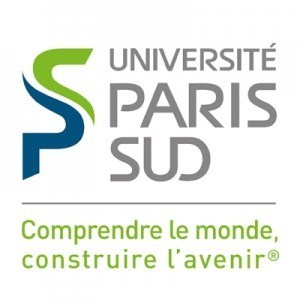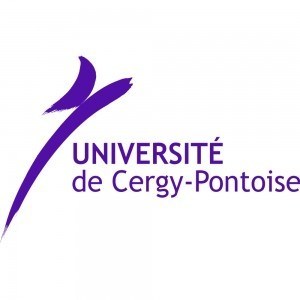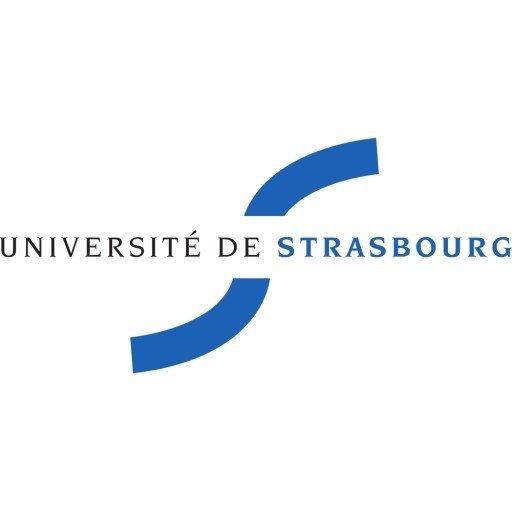Photos of university
The Physics for Optics and Nanosciences Master’s program at Paris-Saclay University is a comprehensive and cutting-edge graduate course designed to provide students with a deep understanding of the physical principles underlying optical phenomena and nanosciences. This program aims to train graduates capable of tackling complex scientific and technological challenges in these rapidly evolving fields. The curriculum integrates fundamental physics, advanced experimental techniques, and theoretical modeling, with a focus on optics, photonics, and nanomaterials. Students will explore topics such as quantum optics, nano-optics, photonic devices, nanomaterials synthesis, and characterization methods. The program emphasizes interdisciplinary skills, combining physics, material science, and engineering to prepare students for careers in research, industry, or entrepreneurship. Throughout the course, students benefit from state-of-the-art laboratories and research facilities, enabling them to undertake projects that address contemporary scientific questions and technological needs. The program also facilitates interactions with leading researchers and industry partners, offering opportunities for internships, collaborative projects, and participation in conferences. Graduates will acquire strong analytical and technical skills, scientific rigor, and innovation capabilities necessary for contributing to advances in photonics, nano-optics, nanotechnologies, and related fields. The program’s structure includes coursework, hands-on laboratories, and a research thesis, fostering both theoretical understanding and practical experience. By completing this program, students will be well-positioned for doctoral studies or roles in sectors such as telecommunications, biomedical imaging, quantum computing, and advanced materials manufacturing. Overall, the Master’s in Physics for Optics and Nanosciences at Paris-Saclay University combines rigorous academic training with exposure to leading-edge research, equipping students with the knowledge and skills to become leaders in the scientific and technological developments shaping the future.
SEMESTER 1
2 elective courses must be chosen in the first period (Sept. – Dec.) and 2 elective courses must be chosen in the second period (Jan. – Apr.) for a minimum of 12 ECTS.
|
Courses |
Professor in charge |
ECTS |
Course location(*) |
|
Quantum optics : Lasers |
A. Aspect |
4 |
X |
|
Quantum physics of electrons in solids |
A. Georges |
4 |
X |
|
Atomic and molecular physics |
N. Kebaïli |
4 |
X |
|
Labworks |
L. Jacubowiez |
3 |
IOGS |
|
French language (2 semesters) |
|
3 |
X |
|
|
|
|
|
|
Sub-Total |
|
18 |
|
|
4 Elective courses |
|
12 |
|
|
Total |
|
30 |
|
|
Electiv courses 1st period (Sept. – Dec.) |
|
|
|
|
Introduction to biophysics |
B. Sclavi |
3 |
ENSC |
|
Introduction to nanophotonics |
E. Deleporte |
5 |
ENSC |
|
Introduction to microfluidics |
O. Français |
3 |
ENSC |
|
Nonlinear optics |
N. Dubreuil |
3 |
IOGS |
|
Materials design |
T. Gacoin |
4 |
X |
|
Lasers, Optics, Plasmas |
V. Malka |
4 |
X |
|
|
|
|
|
|
Elective courses 2nd period (Jan. – Apr.) |
|
|
|
|
Guided and coupled waves |
S. Lebrun/N. Dubreuil |
3 |
IOGS |
|
Nanomaterials and electronic applications |
R. Ossikovski |
4 |
X |
|
Functional thin films and active surfaces |
T. Gacoin |
4 |
X |
SEMESTER 2
|
Courses |
Professor in charge |
ECTS |
Course location(*) |
|
Statistical physics |
J.J. Greffet |
3 |
IOGS |
|
Semiconductor physics |
E. Deleporte |
3 |
IOGS |
|
Experimental project |
S. Bastiani |
4 |
X |
|
|
|
|
|
|
Sub-Total |
|
10 |
|
|
Project in research Laboratory |
F. Hache |
20 |
|
|
|
|
|
|
|
Total |
|
30 |
|
(*) X stands for "Ecole Polytechnique", IOGS for "Institut d'Optique – graduate school", ENSC for "Ecole Normale Supérieure de Cachan". X and IOGS are located in the same campus. ENSC (about 20 km north) can be easily reached with public transportation (RER B).
Research project
Students are expected to work on a research project for at least 12 weeks, in a laboratory of the site (Ecole Polytechnique, Institut d'Optique – Graduate School, Ecole Normale Supérieure de Cachan, Université Paris 11). Students are expected to write a report and to perform an oral defense. The evaluation of the project will take into account the report, the defense as well as the evaluation of the project supervisor.
Validation of the M1
Examinations are performed at the end of each course. Literal marks are given: A (excellent), B (very good), C (good), D (poor), E (fail). A course and its corresponding ECTS are directly awarded by the jury when the mark is higher or equal to C. In case of failure, a second examination is organized.
A scientific course and its corresponding ECTS is also awarded by the jury if the mark is D through compensation by an A or a B in another scientific course. A mark E in a course can be disqualifying for the program ; compensation by an A can be discussed by the jury.
A semester is validated when 30 ECTS have been obtained. The M1 is validated as a consequence of the validation of the two semesters.
Applicants must hold a BSc degree or equivalent. They must also have a good level in spoken and written english in order to be able to follow the courses. Possession of official certificate (TOEFL, ...) is encouraged.
This Master program is very selective since students will have courses in common with the highest-ranked "Grandes Ecoles" in France. Solid bases in quantum mechanics, statistical physics and physical mathematics is mandatory.
Scholarships
- Paris-Saclay Master's Scholarship programme
- « Île de France » Master Scholarship program
- Eiffel Scholarship Program
- Paris-Sud University's Top-Up
The Master’s program in Physics for Optics and Nanosciences at Paris-Saclay University offers students a comprehensive education in the fields of optics, nanotechnology, and condensed matter physics. This interdisciplinary program is designed to equip students with both theoretical knowledge and practical skills necessary for research and development in cutting-edge areas such as photonics, nanoengineering, quantum optics, and nanomaterials. The curriculum typically includes coursework covering fundamental topics like quantum mechanics, electromagnetism, statistical physics, and materials science, alongside specialized modules focusing on optics, nanofabrication techniques, microscopy, and spectroscopy.
Students in this program have the opportunity to participate in laboratory work, research projects, and internships that foster hands-on experience and collaboration with research teams. The program emphasizes innovation and technological development, preparing graduates for careers in academia, industrial research, and high-tech sectors. Being part of the Paris-Saclay ecosystem, students benefit from close cooperation with leading laboratories and institutions such as C2N (Centre for Nanosciences and Nanotechnologies), ensuring access to advanced research infrastructure. The program is usually taught in English to attract international students and facilitate participation in global scientific communities.
Graduates of this MSc program are expected to develop expertise in designing, analyzing, and applying optical and nanoscale devices, which are foundational to advancements in telecommunications, imaging, sensors, and quantum computing. The program also aims to promote critical thinking, problem-solving capabilities, and the ability to conduct independent research. Overall, the MSc in Physics for Optics and Nanosciences at Paris-Saclay integrates academic excellence with practical application, making it a valuable pathway for students pursuing career development in rapidly evolving scientific and technological fields.







